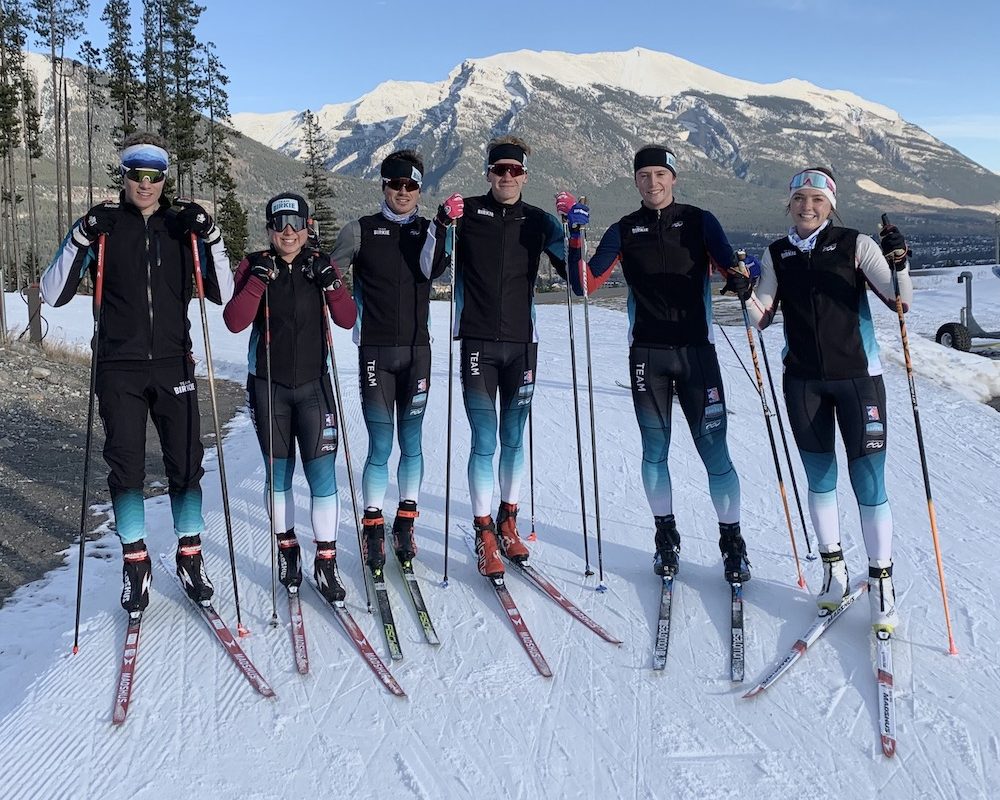 Here’s a news brief from around the Inter-webs.
Here’s a news brief from around the Inter-webs.
Unofficial thoughts on next season’s World Cup
On April 9, Nowegian news outlet VG published an interview with International Ski Federation (FIS) Cross-Country Race Director Pierre Mignerey. The interview created some mild buzz, as Mignerey discussed some 2020-2021 World Cup scheduling scenarios. Still seven months away, but with the Covid-19 pandemic impacting global sport, it is no surprise FIS officials are discussing contingency plans.
VG’s article was not part of an official FIS press release. The FIS is scheduled to discuss how Covid-19 may impact next season at a later date. However, Mignerey was frank in his comments, and discussed worst case scenarios. (FasterSkier used Google Translate to pull quotes from the piece, which was written in Norwegian.)
Mignerey noted that if full travel restrictions remain in effect, producing a World Cup series will be nearly impossible. Further, the article states that if cross-border travel restrictions are lifted, but gatherings are limited to 100 people or less, the race season could be in jeopardy.
Here’s a translated quote regarding quotas on the size of gatherings: “If there is regulation with a maximum of 100 people allowed in the same place, then there will be no World Cup, but with regulation of 500 or 1000 people, it is possible with runners, support equipment, organizer and media.”
According to the translated article, VG published the following bullet points relating to what Mignerey is positing for next season.
“These are some of what the race manager has on the drawing board:
- If travel regulations are such that people cannot move from their own country, the World Cup is impossible.
- If there is quarantine travel regulation, we can move from country to country with some world cup races.
- It may be appropriate to separate men and women. A weekend with men and one with ladies. Or, for example, we can have men for two weeks in Norway, then two weeks with the ladies in Finland for not having too many in the same place at the same time. Everything is on the table.
- Tour de Ski should start in the Christmas season, but is uncertain. It may be appropriate to have the entire tour in the same country so that we do not spread the virus.”
Mignerey also expressed that the possibility of running some events with no fans in attendance. This policy would add some complexity to the pending schedule, as some venues allow fans to attend for free, while other local organizing committees generate revenue through ticket sales. (This past season, Oslo authorities banned spectators from the main Holmenkollen stadium area. However, along the unregulated portions of the course outside the stadium, the course was lined with fans.)
Reminder, this interview with Mignerey conducted and posted by VG was not an official FIS press release.
Virtual Doping Test
In news closer to home, Matthew Futterman of the New York Times wrote a piece on U.S. Anti-Doping’s (USADA) efforts to test athletes virtually. According to the article, USADA began experimenting with virtual tests two weeks ago. The testing procedures eliminate the need for a certified observer to visit the athlete. Athletes are sent a testing kit through the mail, and a video link between the athlete and test observer is used to ensure test protocols are followed.
After the athlete provides a video tour of the bathroom, proving no other individuals are present, “Off camera, the athlete gives a urine sample into a supplied container.” This is a change from the standard protocol for collecting a urine sample, in which the athlete urinates “under direct observation” of a doping control officer or witnessing chaperone of the same gender. (with a link to: https://www.usada.org/sample-collection-process/urine/)
The article goes on to discuss the pitfalls of virtual testing, and efforts to mitigate those downsides. For now, with travel restrictions in place and anti-doping authorities across the globe limited in their face-to-face reach to observe athletes when tested (as is the norm), virtual testing may become the short-term new normal.



